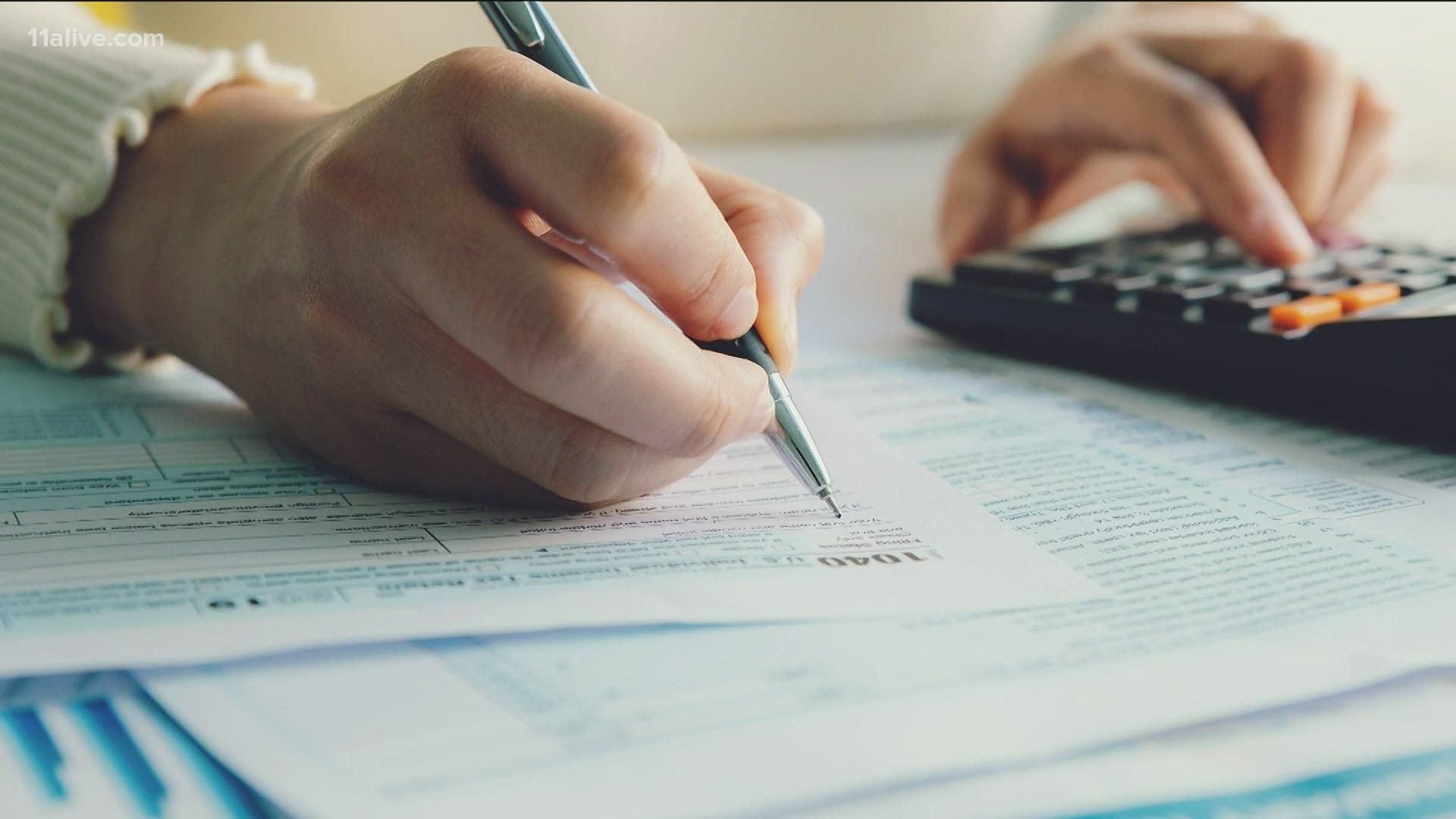ATLANTA — As the Internal Revenue Service turns its attention to tax season, claims are popping up on Twitter about whether stimulus money is still on the table for those who didn't initially qualify for the first two rounds. Some online said they received stimulus check after filing their taxes.
The Question
Can you retroactively qualify for stimulus payments based on your 2020 tax return?
The Answer
Yes. According to the IRS, some people may still be eligible for first and second-round stimulus payments via the Recovery Rebate Credit.
What we found
While the IRS said the majority of economic impact payments, or stimulus payments, were sent successfully based on 2018 and 2019 tax returns, the agency acknowledges some people may have fallen through the cracks or received the wrong amount.
According to the agency, if you didn't qualify for either the first $1,200 check or the second $600 check, you may still be eligible for stimulus funds based on your 2020 tax return.
The IRS lists a few factors that could impact eligibility:
Income change: Some people may have received less than the full Economic Impact Payments because their adjusted gross income was too high. Lower-income in 2020 could make you eligible for the Recovery Rebate Credit.
Qualifying child: Birth or adoption of an eligible child in 2020. Note: Children must be under the age of 17 at the end of 2020 to be qualifying children for the Recovery Rebate Credit.
No longer a dependent: Individuals who were claimed or could be claimed as a dependent on someone else’s tax return in 2018 or 2019, but who cannot be claimed as a dependent on someone else’s return in 2020, may now be eligible.
Social Security number: Individuals who did not have a Social Security number valid for employment in 2018 or 2019 but receive one before the due date of their 2020 return (including extensions) may now be eligible. Some exceptions apply for those who file married filing jointly where only one spouse must have a valid Social Security number to claim RRC.
While such factors could make you eligible for stimulus money, financial advisor Andrew Poulos cautions not to assume the payment will be the full amount.
"In some situations, you still may not get the full amount depending on your income," Poulos said. "It's all income-driven, and it's going to be a case by case basis."
According to the IRS, you must file a 2020 tax return to claim the Rebate Recovery Credit, even if you're not usually required to file a tax return. Poulos said retirees are such an example.
"You have some individuals who are retirees who don't have a reason to file because they don't have a filing requirement," Poulos said. "Also, therefore, they may not have gotten the stimulus payment for issues, such as there's no income tax return on the system for the IRS to find them. They still should file so they can be able to get that Recovery Rebate Credit."
The IRS provides further instructions on eligibility and filing correctly on its website. Experts emphasize to look for the Recovery Rebate Credit on line 30 of your tax return.

